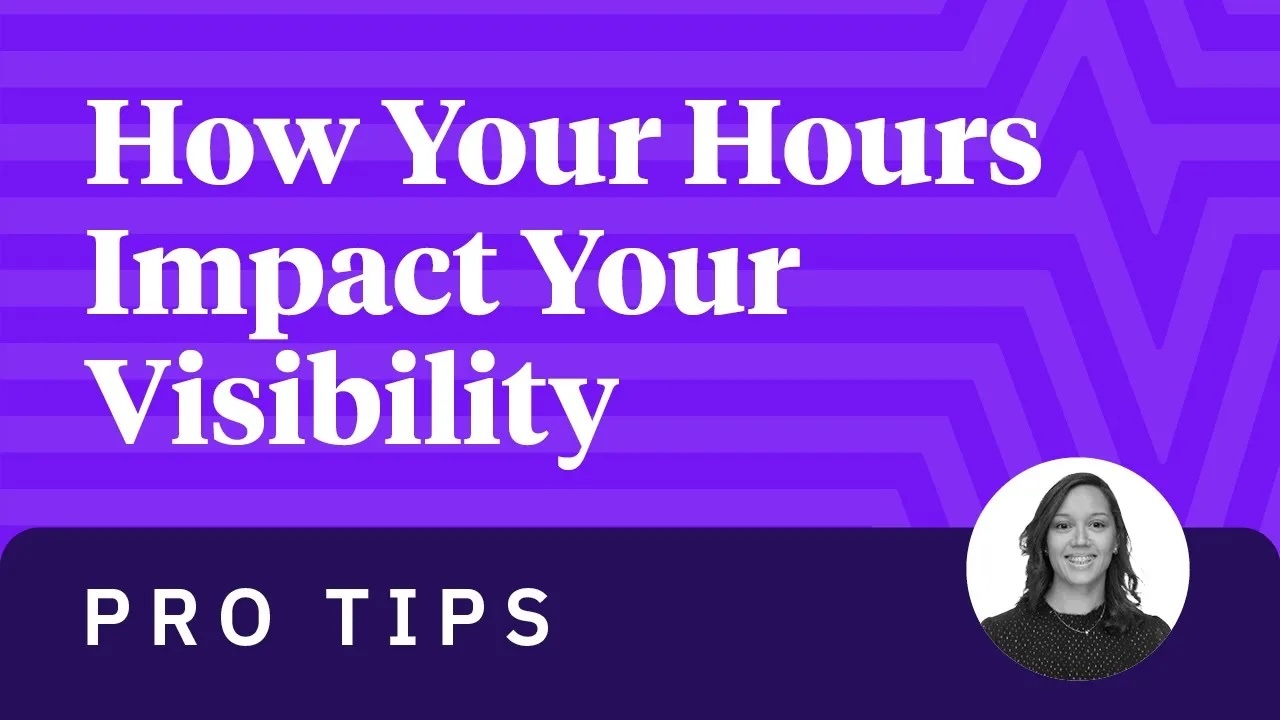
The Continuous Log of Google Search Changes
Over the years, Google has continually refined its search algorithms, ushering in a new era of SEO strategies. Staying abreast of Google's search engine major updates is not merely advantageous—it's essential for businesses striving to maintain relevance and visibility in today's competitive online landscape.
As a continuous log of SERP changes, this blog article will serve as a dynamic resource, regularly updated to reflect the latest developments and nuances in Google's search algorithms, ensuring you stay informed about the ever-evolving landscape of SEO.
Google’s Algorithm Tweaks from 2011-2023
Before diving into recent changes, we'll take a chronological journey through significant Google algorithm updates from 2011 to 2023 to understand their impact on search engine optimization.
2011: Panda
The Panda update marked a pivotal moment in SEO history, diminishing the visibility of low-quality and thin spammy pages—better known as 'content farms'—for the benefit of unique, high-quality, and relevant sites on search engine results pages (SERPs).
2012: Venice
Venice revolutionized the local search landscape by delivering more localized results, and leveraging more local search data. This update enabled Google to identify local user intent, which remains the groundwork for the growth of local businesses up until today.
2012: Penguin
The Penguin update targeted web spam and black hat SEO tactics, penalizing poor linking strategies, keyword stuffing, and cloaking. Paid backlinks were particularly scrutinized, emphasizing the importance of organic and high-quality backlink profiles.
2013: Hummingbird
Hummingbird enabled complex searches, including long tail keywords and conversational queries, for Google to identify the most relevant search results for each query. This google update enhanced contextual understanding, providing users with more precise and relevant search results.
2014: Pigeon
Building upon Venice, the Pigeon update refined local searches further by emphasizing local signals and improving local search results. Users could now access results closer to their location, enhancing their search experience.
2015: Mobile & RankBrain
The Mobile update emphasized mobile-first indexing, encouraging mobile-friendly websites and prioritizing them in mobile search rankings. This update reflected the increasing importance of mobile optimization in the digital landscape.
RankBrain, Google's machine learning system, aimed to understand search queries better and interpret search intent. It remains one of the most influential ranking factors, ensuring users receive the most relevant answers to their queries.
2018: Mobile & Medic
The next—or next two—Mobile updates officially introduced the ‘mobile-first’ index and made page speed a ranking factor for mobile devices.
The Medic update focused on expertise, authority, and trust (EAT), particularly impacting health, wellness, and finance industries—also known as ‘Your Money, Your Life’ (YMYL) pages.
2019: BERT
The BERT update introduced natural language processing, enabling Google to understand search queries better and interpret wider context and complex searches. This update enhanced search relevance and user experience.
2020: Pandemic Response
In response to the COVID-19 pandemic, Google adapted its search algorithms to prioritize authoritative and up-to-date information related to the pandemic, including health guidelines, safety measures, and updates from reliable sources, to ensure users received accurate and relevant information during this unprecedented global crisis.
2021: Page Experience
The Page Experience update incorporated Core Web Vitals metrics and user experience, emphasizing quick-loading sites and clear navigations in SERPs. This update aimed to enhance user experience across both mobile and desktop platforms.
2022: Helpful Content
The Helpful Content update emphasized user-first content creation, focusing on high-quality and useful content for readers. User experience, usefulness, and content quality became crucial factors in page ranking.
2023: FAQ and How-To Structured Data Update
Google announced a shift in importance for FAQ and how-to structured data, prioritizing authoritative Government and health sites. With no negative impact on existing sites, incorporating FAQ content remains advisable for all businesses.
Google Algorithms in 2024 and beyond—what’s to expect?
The confluence of Search Generative Experience (SGE) and the Digital Markets Act (DMA) is leaving a significant imprint, reshaping the landscape of online commerce and regulatory frameworks to redefine how businesses operate and interact within the digital ecosystem.
#1 Google Posts In The Spotlight
Google continues to evolve how Google Posts are surfaced to searchers. The strategic placement on the search engine results page (SERP) not only enhances user experience but also presents businesses with a prime opportunity to capture the attention of potential customers.
Notably, the prominence of these posts within the mobile SERP's 'Nearby Events and Deals' section offers a compelling advantage for businesses, amplifying their visibility beyond the traditional map pack.
#2 Opening Hours As Ranking Factor
Since the November 2023 core update, there has been a noticeable impact on how businesses' operating hours influence their visibility—likely following the rising amount of searches like ‘open near me’ with local intent. It appears that closed businesses may not show up in the local pack, while temporarily closed listings struggle to maintain their ranking.
Even more intriguing, rankings seem to drop significantly, sometimes by as much as 11 spots, just before a business closes for the day. This could be due to a message indicating the impending closure affecting user engagement.

#3 More Review Sites in Preview
Google now showcases a curated selection of reviews when users search for a specific brand. This carousel prominently displays a maximum of three reviews, each accompanied by their respective text snippets.
When clicking on the button "View all reviews", Google triggers a new search for "Name of the listing" + "Reviews" in a new window, listing organic website results as well actual reviews. Interestingly, these reviews may not solely originate from Google's own platform but can also include reviews sourced from other directories such as NiceLocal, GoLocal, and GelbeSeiten. Our data shows that especially Yelp benefits greatly from this google update, ever growing organically on search throughout 2023. Even first party reviews from your own site will show on GBP if you mark them up with Schema.
This enhancement aims to provide users with a comprehensive overview of a brand's reputation across various platforms, facilitating more informed decision-making.
#4 Place Sites
Traditional SERP features like the Google 3-Pack, showing a map, or carousels with product listings positioned at the top of the page are becoming less prevalent in the EU, due to the above mentioned DMA.
Instead, users are more likely to encounter a section labeled "place sites," showcasing alternative business directory website results. Additionally, product carousels may be pushed further down in the search results, sometimes appearing after up to three website listings.
#5 AI in Google Maps
Besides SGE, Google is further experimenting with AI in Google Maps, introducing a feature to help users discover new places. It is currently available to selected Local Guides in the U.S. as an early access experiment
#6 GBP Custom Services
Google is adding custom services to the Google Business Profile, which can positively impact a business’ ranking, albeit to a lesser degree than predefined services. Emphasizing these custom services with emojis can further enhance visibility and justifications, even without specifying price or service descriptions.
#7 New Spam Policies
In March 2024, Google announced “more complex update than our usual core updates”, focusing on the relevance of search results and quality of content. This is likely a reaction to the rise of AI-generated content—to combat content that provinces little to no value to users.
Specifically, Google targets three new spam policies against bad practices they’ve seen grow in popularity:
Expired Domain Abuse: when an expired domain name is purchased and repurposed to manipulate search rankings.
Scaled Content Abuse: when many pages are generated for the primary purpose of manipulating search rankings.
Site Reputation Abuse: when third-party pages are published with little or no first-party oversight or involvement to take advantage of the first-party site's ranking
Generally, website owners are advised to focus on creating high-quality content and avoiding manipulative SEO tactics.
#8 Social Posts on GBP
In selected regions, companies can add social media links to their business profiles—and Google may begin showcasing social media posts automatically, too.

#9 Provider Removal for Restaurant GBP
Google has just added the ability to ‘Request Removal of a Delivery Provider’ directly on GBP; which has been one of the biggest complaints within the (local) restaurant industry. Providers then have to remove third-party links within 5 days.
By the way, you can also set a preferred provider to show up as ‘Preferred by Business’
#10 Website Links on Hotel Profiles
Google is adding direct website links in the local results for restaurants and hotels; in addition to the typical button call-to-actions (below in blue) that feature ‘Website’ as well.
#11 Distinguished Bookable and Additional Services
Google separates the services listed on the Google Business Profile in two separate columns during mobile searches: bookable services have a ‘book’ CTA button right next to it while additional services feature the standard service selection.
#12 Review Recency as Ranking Factor
Studies show that a steady influx of new reviews leads to better rankings—so review recency has definitely become a relevant ranking factor. And while you can't incentivize customers to leave reviews, you can definitely incentivize your staff to encourage reviews.
#13 Response Time for GBP Chat Messages
We all know that timely responses to messages and reviews matters, promoting customer trust and engagement. To improve user experience, Google now deactivates the chat feature on Google business profiles that haven’t replied to messages in a while.
However, business can turn the chat back on at any time—but are urged to respond to messages within 24 hours.
#14 N-E-A-T-T
Search Engine Land just highlighted two overlooked aspects of Google’s E-A-T (Expertise, Authoritativeness, Trustworthiness) concept: notability (N) and transparency (T). These additional elements emphasize the recognition and impact of entities within specific fields (notability) and the importance of openness and honesty regarding content or business origin (transparency).
Integrating N and T into digital strategies alongside E-A-T enhances credibility with both users and Google's algorithms, contributing to improved online presence and search rankings.
#15 Google Short Videos
Google is experimenting with a new 'Short Videos' menu on mobile, guiding users to a feed of brief videos from platforms like YouTube, TikTok, and Instagram. This trial comes after Google introduced 'Forums' in place of 'Perspectives' in the US, ongoing tests of 'Web Results', and default displays of 'Products' and 'Product Sites' in the UK.
Conclusion
As we look back on the trajectory of Google's algorithm updates spanning from 2011 to 2023, it's evident that the search engine giant continues to prioritize user experience, relevance, and trustworthiness. From combating spammy content to enhancing semantic understanding, each algorithm tweak has been geared towards refining search results and improving user satisfaction.
Looking ahead, the SGE and DMA will undoubtedly shape the future of online commerce and digital interaction. Amidst these changes, businesses must remain vigilant, adapting their SEO strategies to align with Google's evolving algorithms and providing users with valuable, user-centric content and experiences.
Our advice: bookmark this blog article, because we’ll be updating it regularly—and reach out to the Uberall team to learn more about local SEO.
Explore how Uberall can help your business thrive in a digital-first world
